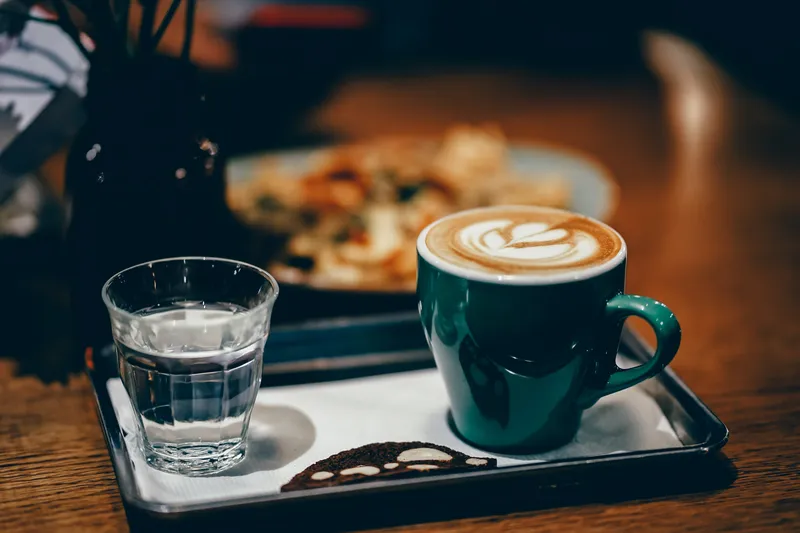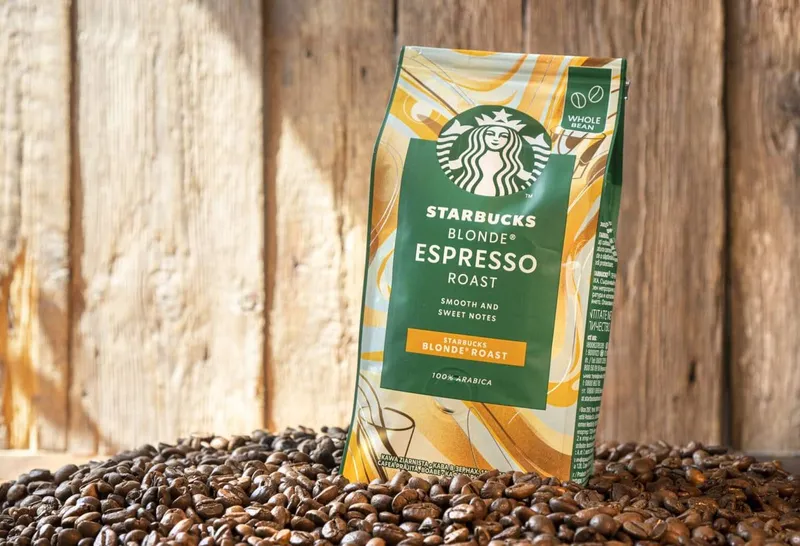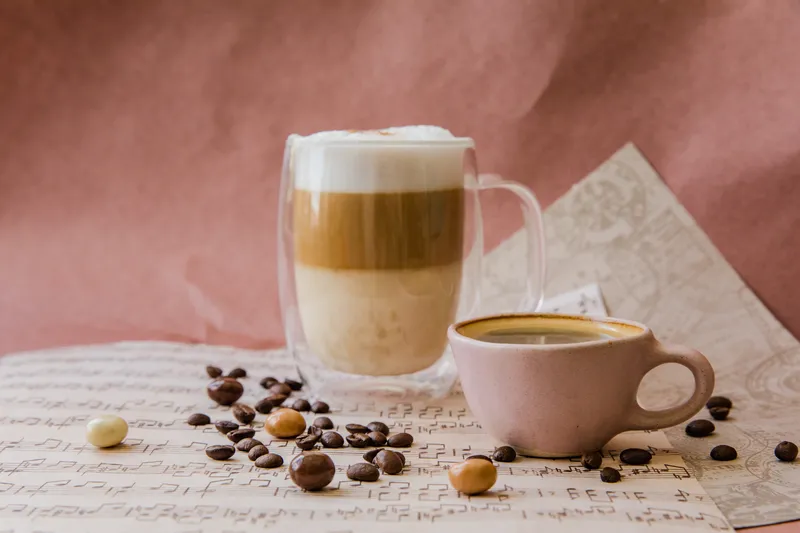Ever feel like interpreting your local coffee shop's menu feels like deciphering James Joyce's Ulysses? Sometimes it seems a bit exaggerated, but cracking the code of today's coffee menus can certainly be a head-scratcher.
Picture this: baristas are constantly mixing up the menu with new, fancy-sounding drinks. And if you dare to ask about that latest Italian concoction, you might just receive a surprised look followed by a heavy sigh. It's enough to make even a coffee aficionado feel a tad lost.
But fear not, we're here to help!
We've untangled the web of modern coffee menus by breaking down four popular drinks: Macchiato, Cappuccino, Mocha, and Latte. Understanding these will make you a coffee shop connoisseur in no time! The trick lies in the balance of foam, milk, and espresso. Let's dive in.
Mocha
Think of Mocha as the sweet escape in your coffee journey. Often likened to a dessert in a cup, the Mocha (or Mochaccino, or Caffe Mocha) is a delectable fusion of espresso, chocolate, and hot milk. It’s like a Latte with a chocolatey twist.
Making a Mocha is a piece of cake: start with espresso, add hot chocolate, and top it off with steamed milk. And for those with a sweet tooth, baristas often add marshmallows, flavored syrups, and whipped cream. It's essentially hot chocolate with a coffee kick!
Latte
You’ve probably seen a Starbucks Latte in the hands of multitasking parents during the morning rush. This creamy delight, known in full as 'Caffe Latte' (Italian for "milk coffee"), is the epitome of smoothness.
Its cousin, France's café au lait, is a breakfast staple with croissants. Lattes became a hit in the U.S. in the mid-20th century, and it’s easy to see why. They’re super creamy, starting with a double espresso shot, followed by steamed milk, and topped with a whisper of foam. And let’s not forget the artful flourishes many baristas add on top.
Cappuccino
The Cappuccino, with its roots in the Austrian "kapuziner," strikes a perfect balance between milk foam, steamed milk, and espresso.
To whip up this classic, start with espresso, add steamed milk (carefully to keep the foam in the pitcher), and then spoon the foam on top. It's common to find a sprinkle of cinnamon or chocolate powder on top. While not as artsy as Lattes, some Cappuccinos do feature elegant designs swirled into the foam.
A Cappuccino is ideal for those who love the bold taste of espresso but prefer it a bit milder. The milk softens the espresso's sharp edges, creating a harmonious and flavorful blend.
Macchiato
Now, let's explore the Macchiato, also known as Espresso Macchiato or Caffe Macchiato. "Macchiato" means "spotted" in Italian, indicating the drink's unique presentation. In Portugal, it's known as "cafe pingado," or "coffee with a drop."
The Macchiato is for those who favour a stronger coffee taste. It's a layered spectacle of espresso and milk. Standard preparation involves a double shot of espresso, a layer of steamed milk, and a dollop of milk foam. What's great about Macchiatos is their flexibility; as long as it has espresso and milk, it's good to go.
For the coffee connoisseur who loves a robust flavour, the Macchiato, made with high-quality espresso beans, is a must-try.
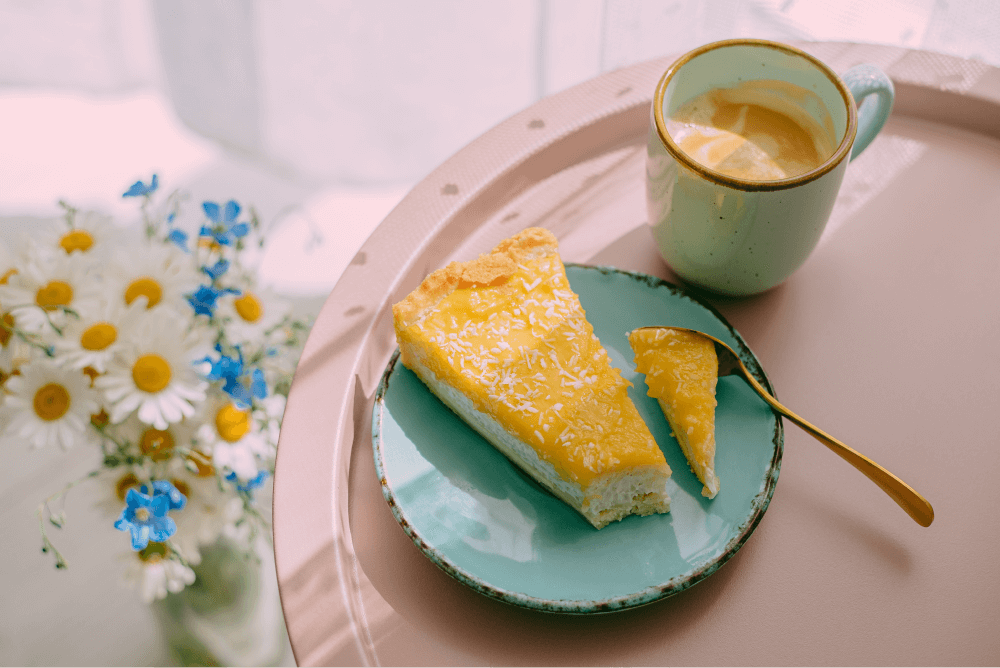
Understanding The Ratio of Ingredients
| Drink | Ingredient Composition |
| Mocha | One shot of Espresso (25%), Chocolate Syrup (25%), Steamed Milk (40%), Topped with Whipped Cream and Chocolate Drizzle (10%) |
| Latte | One or two shots of Espresso (30%), Steamed Milk (60%), Topped with a small amount of Milk Foam (10%) |
| Cappuccino | One shot of Espresso (33%), Equal parts of Steamed Milk and Milk Foam (67%) |
| Macchiato | One shot of Espresso (85%), Topped with a dash of Foamed Milk (15%) |
The Magic Lies in the Milk!
All these drinks share a common hero: espresso, usually as a single or double shot. But the real game-changer is the milk.
To the average Joe, the milk type might seem inconsequential. However, each drink requires a specific milk texture. Some need hot milk, others micro-foam, or even stiff foam. The skill lies in heating the milk to the right temperature using a metal jug and steam wand, found on quality espresso machines.
The steam wand not only heats the milk but also introduces air, creating the different types of milk foams crucial for these drinks. The key difference is in the bubble size: frothed milk sees its volume roughly doubled, while steamed milk increases by about a third.
So, you see, without milk, these drinks wouldn't be the same - the magic truly lies in the milk!
Understanding the Key Differences: A Comprehensive Guide
| Coffee Type | Origin | Components | Flavour Profile | Serving | Calories |
|---|---|---|---|---|---|
| Macchiato | Originates from Italy | Comprises steamed milk and espresso | Exhibits a strong flavour | Typically served in a glass | Offers less than 100 calories |
| Cappuccino | Rooted in Italy | Composed of espresso, steamed milk, and milk foam | Strong flavour profile, slightly creamy | Served in a ceramic coffee cup | Ranges from 75 calories (nonfat milk) to 120 calories (whole milk) |
| Mocha | An American coffee drink | Consists of espresso, chocolate, steamed milk, and optional whipped cream/marshmallows | Notably sweet flavour | Usually presented in a glass | More than 300 calories, contingent on the additional toppings |
| Latte | Originated from Italy | Constitutes a double espresso, steamed milk, and milk foam | Showcases a mild flavour | Can be served in either a glass or a coffee cup | Varies from 130 to 290 calories, dependent on the type of milk used |
Please note that these caloric values are approximate and may vary based on the specific ingredients used and the serving size.
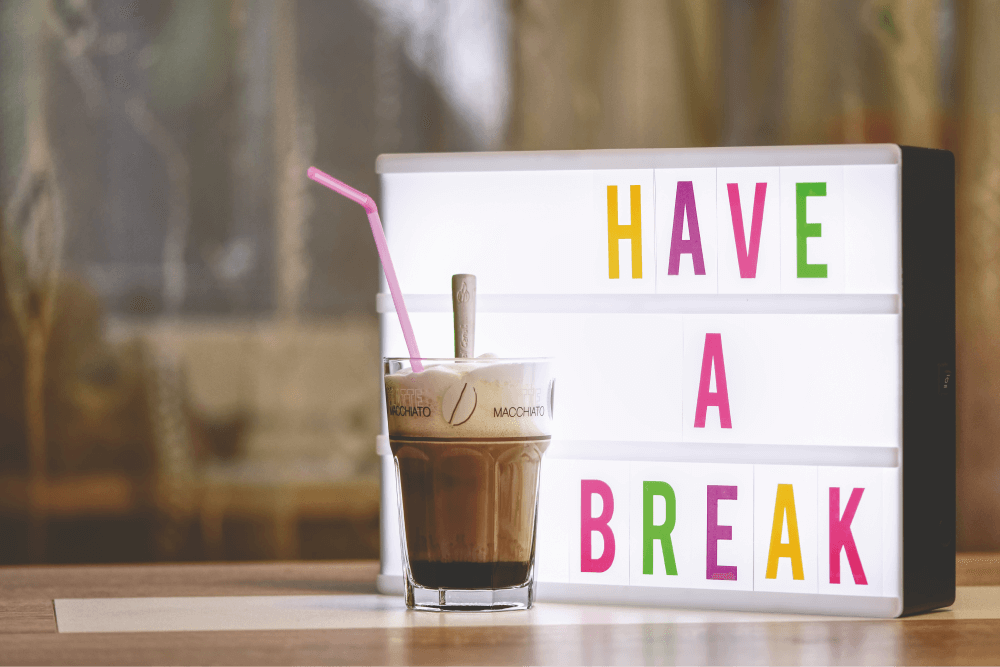
What's Your Top Pick Among Espresso-Based Drinks?
Now that you're armed with this knowledge, your next coffee shop order should be a breeze.
Still undecided? Think about how strong you like your coffee and your preference for milk foam. Love a potent coffee? Try a Macchiato. Prefer a milky blend? Go for a Latte. In the mood for something sweet? Mocha is your answer!
And if you're as adventurous as we are, why not try them all at least once? Who knows, you might even find yourself daring enough for a Starbucks Unicorn Frappuccino – though, in our case, it was more a one-off whimsical journey!
